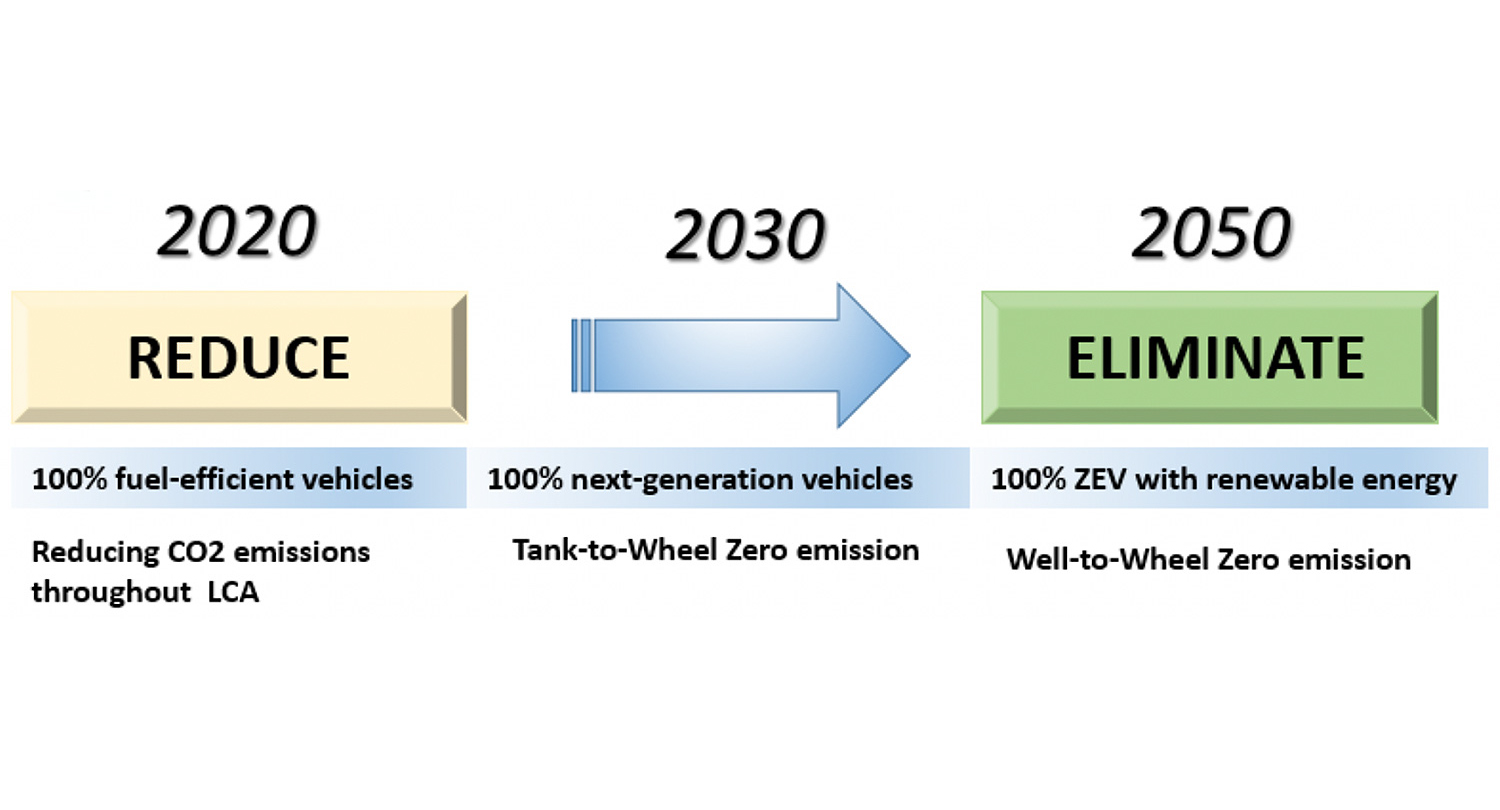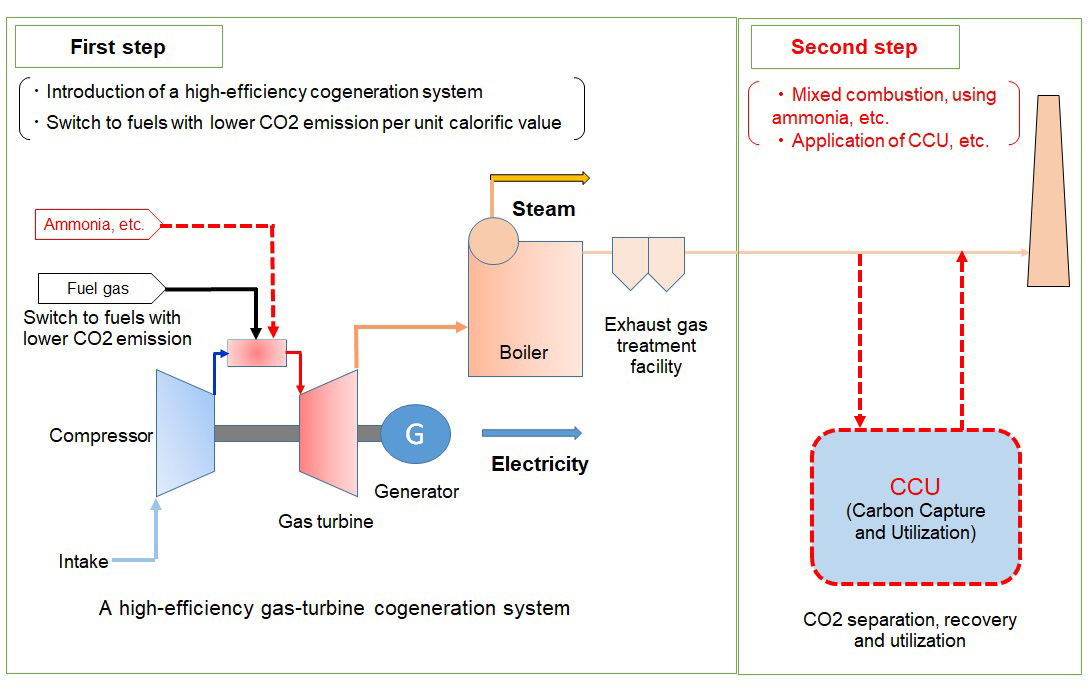Zero net plastic-derived CO2 emissions in multifunction printers by material technologies that utilize biomass-derived and waste resources
KONICA MINOLTA, INC.
Outline
We aim to achieve zero net CO2 emissions from plastics by further developing technologies that utilize waste materials as high-performance materials and build technologies that utilize biomass-derived materials to convert petroleum-based materials used in multifunction devices and consumables (such as toner).
There are generally issues of utilizing biomass-derived materials and waste materials as high-performance materials such as multifunction devices that performance is lower and product quality is more difficult to stabilize than virgin materials made from petroleum.
We will promote new resin development by developing material technology, molding technology, one of the core technologies cultivated over many years, and combining material development, material selection and processing technology.
If this technology is put to practical use, it will not only be applied to multifunction printers we sell, but also through the environmental digital platform we envision, sharing technologies with various companies, expanding the circle of cooperation globally, and dramatically increasing the effect.
Description
There is a great deal of resources in the world that are still available but have been discarded. By developing new recycling technologies and global waste collection and transportation methods, we can evoke unprecedented resource recycling. Konica Minolta is focusing on PET bottles and milk bottles as resources that are present in large quantities but for which effective recycling is an issue. Utilizing our unique material technology and production technology, we have succeeded in "upgrade recycling" that uses used resources as high-performance materials such as multifunction printers. By sharing this technology with partner companies, we have built a new resource recycling scheme.
Towards 2030, we aim to achieve zero net CO2 emissions from plastics by further developing technologies that utilize waste materials as high-performance materials and build technologies that utilize biomass-derived materials to convert petroleum-based materials used in multifunction devices and consumables (such as toner).
Advanced technologies are required to utilize biomass-derived and waste materials as high-performance materials such as multifunction printers, because it is necessary to use various raw materials with various degradation states and apply them to products. In general, there is a problem that the performance is lower, and the product quality is more difficult to stabilize than virgin materials made from petroleum. For example, high impact resistance and flame retardancy, good moldability, and removal of impurities contained in materials are required.
In order to overcome the above issues and achieve zero emissions, we will develop material technology and molding technology, one of the core technologies cultivated over many years. For example, recycled plastics derived from PET bottles that have already been put into practical use have adopted a polymer alloy that is mixed with other resins. For PET and polymer alloys, we selected PC gallon bottle-derived materials that have high physical properties, high toughness, high strength, excellent flame retardancy, and a stable supply of recycled materials. We plan to promote new resin development by combining such material development, material selection, and processing technology.
If this technology is put to practical use, it will be deployed on multifunction printers we sell, but the effect is limited. We are promoting an environmental digital platform initiative to share and develop environmental technologies and know-how with many companies. By sharing these technologies with various companies and expanding the circle of cooperation globally, we believe that our contribution to solving global environmental problems can be dramatically increased.
Supplementary information
Similar Innovation Challenges
Achieve 2050 decarbonization target with Net Zero Energy House!
Sekisui House, Ltd.
Achieving net-zero emissions by promoting renewable energy use through both our monozukuri and products.
DAIWA HOUSE INDUSTRY CO., LTD.





